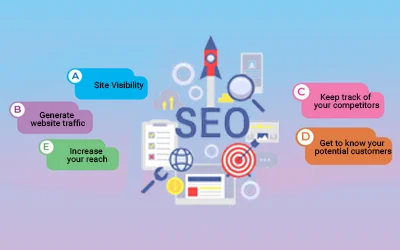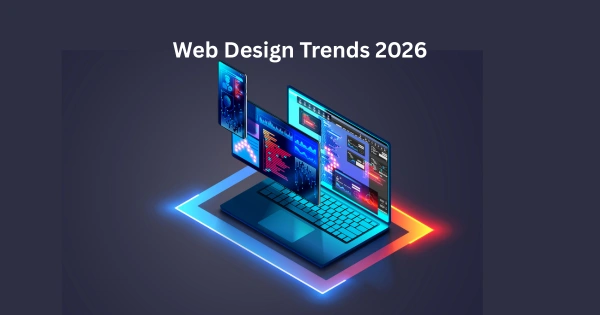In this speedy-evolving digital space, the best web development frameworks have ended up being the important thing to improving virtual functionalities and safety for your website.
It's a fact that the lifespan of most websites is only two to three years. Therefore, it demands continuous upgradation and evolution, and as a result, it calls for a sturdy internet framework.
Every internet site requires an appropriate framework, and selecting the proper one may be a daunting task.
In this blog, we will talk about the ten best frameworks for web development. Give it a study and make a knowledgeable decision on your internet site.
What Are Web Development Frameworks?
Web development frameworks are software program frameworks or equipment to develop web applications, web services, and web APIs.
These frameworks include pre-written code libraries and application templates that simplify the improvement procedure and standardize design conventions. Their benefits consist of:
- Improve code efficiency and reusability, reduce complexity, and dispose of mistakes.
- Help bootstrap development, reduce code length, and work labor.
- Provide better protection and allow easy debugging and renovation.
Choosing the right and best framework for web development can keep effort and time whilst improving internet site functionality and overall performance. It makes it critical to make a knowledgeable choice whilst choosing a framework for your website.
Types Of Web Development Frameworks
Web development frameworks embody diverse tools and structures that resource in website and web application development.
There are 2 styles of web development frameworks: Frontend development frameworks and Backend development frameworks.
Front-end frameworks like React.Js, Angular, and Vue.Js focus on consumer interface improvement, whilst Back-end frameworks consisting of Node.Js, Django, and Ruby on Rails facilitate server-facing operations.
Both are 2 aspects of the identical coin, i.e. an extra robust website. Below is a clear difference between the 2 kinds:
FrontEnd Web Development Framework
- These web development frameworks are responsible for enhancing the first-hand interaction for users on the website.
- It primarily concentrates on the user interface and user experience,i.e., UI/UX services of the websites and web applications.
- This enables the defense of the consumer interface against common vulnerabilities, including cross-website scripting (XSS), and guarantees steady verbal exchange with backend servers.
- Front-end technologies essentially use HTML, CSS, and JavaScript, consisting of famous frameworks like React, Angular, and Vue.Js.
BackEnd Web Development Framework
- It is responsible for growing overall performance on the server end for complicated internet packages.
- It focuses broadly on server-aspect overall performance, coping with utility logic, data, and business methods.
- It makes a specialty of coping with person authentication and addressing safety threats which include SQL injection or unauthorized use of assets.
- The best frameworks for web development backends typically use languages together with Python (Django, Flask), JavaScript (Node.Js), Ruby (Ruby on Rails), and PHP (Laravel).
Top 10 Web Development Frameworks Worth Considering
Looking for quality web frameworks may be overwhelming with so many options.
Here is an in-depth list of the 10 best web development frameworks that can be used in 2024 to make your website more efficacious.
These frameworks are selected for being robust, flexible, famous, and making web development simpler. Whether you're just beginning or have experience, this listing gives you an understandable study of the top frameworks that can make a massive impact on web development.

React (Frontend)
Commonly referred to as ReactJS, it was brought by Meta in 2013 and is one of the most popular web frameworks.
According to a survey, the ReactJS development framework is used by over 40.6% of the respondents.
This framework is an open-supply JavaScript interface library that is famous for developing an interactive user interface. It is heavily preferred by developers in creating single-page web applications.
Advantages:
- Virtual Document Object Model(DOM) that allows the short loading of even high-capacity tasks.
- Suitable for creating mobile software applications
- High pace, high performance, and simplicity of learning.
Disadvantages:
- Lack of documentation due to rapid improvement.
- Search engine marketing-related problems with Google and Indexing.
jQuery(Frontend)
This is a popular JavaScript library that enables managing CSS and DOM, traversing HTML files, event coping, animation, and many others.
According to a survey, jQuery is utilized by 78.5% of websites.
This open supply library is out there for a large number of browsers, making it the best framework for web development frontend.
This framework is pretty small in length or lightweight, making the operation smooth for developers.
Advantages:
- Straightforward to apply, justifies its action-oriented policy
- Cross-browser assist
- Extensive capability due to plugin utilization
Disadvantages:
- Limited scalability
- Debugging problems for complex tasks
Angular (Frontend)
These TypeScript-based web development frameworks are introduced by using Google under the MIT license. This open-supply JavaScript framework is pretty famous for growing single-page consumer interfaces. Angular is based totally on MVC (model-view-architecture) and enables the creation of complex web programs.
It comprises two-way record binding, modular structure, declarative templates, dependency injection, etc., which all ease the process of web application development.
Advantages:
- Availability of several programs to develop web applications
- Larger community and Ecosystem
- Support of MVC structure
Disadvantages:
- Steeper learning curve
- Limited search engine marketing capabilities
Vue.JS (frontend)
This JavaScript web development framework is based on the Model-View-ViewModel(MVVM) framework. With its characteristic of declarative rendering, it allows the declarative description of HTML output based on the JavaScript nation. It is an alternative to heavier frameworks like React and Angular.
It creates single-page programs through contemporary equipment and support libraries and allows SEO (search engine optimization) as well.
Advantages:
- Easy to apply
- Better and superior documentation
- Small length
Disadvantages:
- Limitation to languages
- Limited plugins
Ember(Frontend)
Ember.Js is an open-source, free JavaScript framework used for growing reusable web applications.
It makes use of templates that help auto-update the version while the content material of the software receives changes. The glimmer rendering engine allows growth in the rendering velocity. This framework is likewise based totally on MVVM architecture.
Its top-notch functions consist of the Command line interface (CLI) utility, new binding syntax, and double-side data binding, which makes it the best framework for web development frontend.
Advantages:
- Excellent overall performance with simple codes
- Long-time period aid and upkeep
- Thorough and particular documentation
Disadvantages:
- Steep Learning curve
- Complex syntax shape
Express.JS (Backend)
ExpressJS is a node.Js framework that allows the creation of internet and mobile programs. Creating a sturdy API is now quick and clean with several HTTP application techniques and middleware in Express. This framework can help create single-web page, multi-page, and hybrid web applications and is the best framework for web development backend.
The functions of this development framework include rapid server-side improvement, debugging, routing, middleware, and templating, making it time-efficient for developing web applications.
Advantages:
- Easy to learn and speedy processing
- Non-opinionated, i.e., freedom to increase apps and software programs
- Scalability
Disadvantages:
- API stability problems
- Unstable library support
Checkout the list of popular Java frameworks for web development
Django(Frontend + Backend)
Django is a free,open-supply expert-level Python web framework that permits the introduction of more secure websites. With its up-to-date documentation, it completes all of the requirements of developers in a single place, making it one of the most popular web frameworks.
This framework emphasizes the reusability of additives and is popular for its scalability and protection. It also follows the model-view-template(MVT) architecture pattern that boosts the capability of web development applications. And thus, it is known as the best framework for the web development backend in the industry.
Advantages:
- Batteries included, i.e., ORM, authentication system, and templating gadget, all in one location.
- Proper documentation
- Higher community support
Disadvantages:
- Not for small-scale initiatives
- Steep learning curve
Ruby On Rails (Backend)
Written in Ruby programming language, this web development framework guides the model-view-controller(MVC) architecture. With its features like Convention over Configuration(CoC), Dont Repeat Yourself(DRY), in-built checking out, scaffolding, and many others, this framework allows for the development of lengthy projects. All this combined makes it the best framework for web development backend services.
Advantages:
- Test automation
- Large network
- Pleasant Code Quality
Disadvantages:
- Lack of flexibility
- Improper documentation
Laravel(Backend)
Laravel is an effective PHP-based backend web development framework regarded for its stylish syntax and strong features. It gives a smooth, expressive API and follows the MVC (Model-View-Controller) architectural pattern, simplifying duties like routing, authentication, caching, and more.
Laravel development services are cognizant of security, scalability, and ease of use, making it the best framework for web development for scalable websites.
Advantages:
- Eloquent ORM for database interplay
- Active and supportive community
- Extensive documentation
Disadvantages:
- Steeper getting-to-know curve
- Extensive framework dependency
Flask (Backend)
Flask is a lightweight and flexible Python-based backend web development framework regarded for its simplicity and flexibility. It follows a minimalistic approach, permitting builders to construct web programs quickly and successfully.
With its modular design, Flask empowers developers to choose the tools and libraries they need, offering freedom in software shape and improvement. It presents essential functions for web development while remaining non-opinionated, permitting customization based totally on project requirements.
This is one of the best web development frameworks, as it is perfect for medium-scale web applications, APIs, and prototypes.
Advantages:
- Simple to apply, flexible, scalable
- Extensive documentation
- Active community
Disadvantages:
- Lack of built-in features
- Large Assignment Complexity
In Brief
Choosing the right and best web development frameworks can appreciably impact your website's overall performance and sturdiness inside the virtual realm.
Whether it's enhancing user interplay with frontend frameworks or making sure of robust backend capability, each framework brings its precise strengths and issues.
By knowing the nuances and capabilities of these most popular web frameworks, you can navigate the dynamic panorama of web development, ensuring your website stands proud with greater capability, security, and user experience.
Moreover, for any similar facts or advice, you could rely upon Invoidea, the best web development company in Delhi, to assist you with each web improvement-related situation.
FAQs:
What is a web development framework?
A web development framework is a hard and fast tool or software program that aids in developing web applications, services, or APIs. It facilitates developing them via the use of pre-written codes, libraries, templates, and many others to provide a streamlined shape.
How do I choose the right web development framework for my project?
Choosing the right framework calls for proper know-how of your desires, like challenge complexity, scalability desires, group information, etc. You have to not forget elements like the right documentation, network support, learning curve, and so on while deciding on the right framework.
Which Frontend framework is easiest?
Vue.Js is taken into consideration as the easiest framework for beginners due to its clear documentation, clean syntax, and mild learning curve. However, the selection may vary from individual to individual, depending on their requirements
What is the fastest web framework?
Some of the best frameworks are Django, Express.Js, and React. However, the quickest framework is reliable on different factors like undertaking complexity, server optimization, etc.











